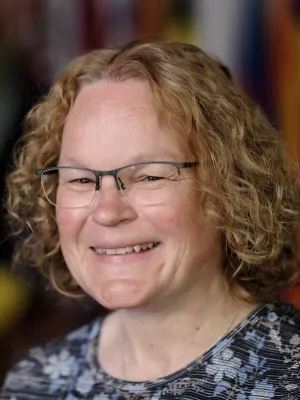
Jenny Palm
Head of department

Exploring energy citizenship in the urban heating system with the ‘Walking with Energy’ methodology
Author
Summary, in English
Background: Energy citizenship has emerged as a concept which attempts to capture the new role envisaged for urban citizens as engaged and active in the energy transition. However, exactly how to successfully engage energy citizens requires more research and this article aims to contribute to this knowledge gap. The article presents a new methodology, ‘Walking with Energy’, which seeks to (re)connect citizens with where their energy is coming from. By experimenting with the application of this method in the UK and Sweden, we consider how viewing and talking about heating provision, whilst in the energy landscape, can encourage participants to reflect upon their local, mundane energy experiences and foster a greater sense of energy citizenship and greater motivation to engage with debates around heating transition.
Results: The article presents four different events: 1) A physical walk to an Energy Recovery Facility, 2) a walk to view a building’s heat exchanger, 3) a round-table discussion using pictures to communicate in a language café, and 4) a virtual tour around an Energy Recovery Facility. The way we conducted the events influenced who engaged, for example: the walk through a heat facility and the walk to visit a heat exchanger in the basement of a University building tended to attract white middle-class people, while the virtual tour attracted a more mixed audience in terms of age and background, but most had a strong environmental interest. The language café targeted immigrants. The different events resulted in many similar reflections, but there was also variation. For example, the walk through the heat facility generated the most focused and least diverse reflections, while the event focussed on the heat exchanger opened up a wide range of issues for discussion.
Conclusions: We find that the method encouraged the sharing of personal experiences, storytelling, and deepened the engagement of participants with debates about energy. The method can help promote energy democracy and boost a deliberative dialogue about present and future energy systems among citizens. We also learnt that promotion of energy citizenship requires not only active citizens but also active facilitation to create opportunities for citizens to engage and reflect.
Results: The article presents four different events: 1) A physical walk to an Energy Recovery Facility, 2) a walk to view a building’s heat exchanger, 3) a round-table discussion using pictures to communicate in a language café, and 4) a virtual tour around an Energy Recovery Facility. The way we conducted the events influenced who engaged, for example: the walk through a heat facility and the walk to visit a heat exchanger in the basement of a University building tended to attract white middle-class people, while the virtual tour attracted a more mixed audience in terms of age and background, but most had a strong environmental interest. The language café targeted immigrants. The different events resulted in many similar reflections, but there was also variation. For example, the walk through the heat facility generated the most focused and least diverse reflections, while the event focussed on the heat exchanger opened up a wide range of issues for discussion.
Conclusions: We find that the method encouraged the sharing of personal experiences, storytelling, and deepened the engagement of participants with debates about energy. The method can help promote energy democracy and boost a deliberative dialogue about present and future energy systems among citizens. We also learnt that promotion of energy citizenship requires not only active citizens but also active facilitation to create opportunities for citizens to engage and reflect.
Department/s
- The International Institute for Industrial Environmental Economics
Publishing year
2023-05-15
Language
English
Publication/Series
Energy, Sustainability and Society
Volume
13
Full text
Document type
Journal article
Publisher
Springer
Topic
- Social Sciences Interdisciplinary
Keywords
- walking interviews
- energy citizenship
- heating system
- energy citizens
- research participation
Status
Published
Project
- Walking with Energy: overcoming energy invisibility through research participation
- Looking back, moving forwards: a social and cultural history of home heating
ISBN/ISSN/Other
- ISSN: 2192-0567

